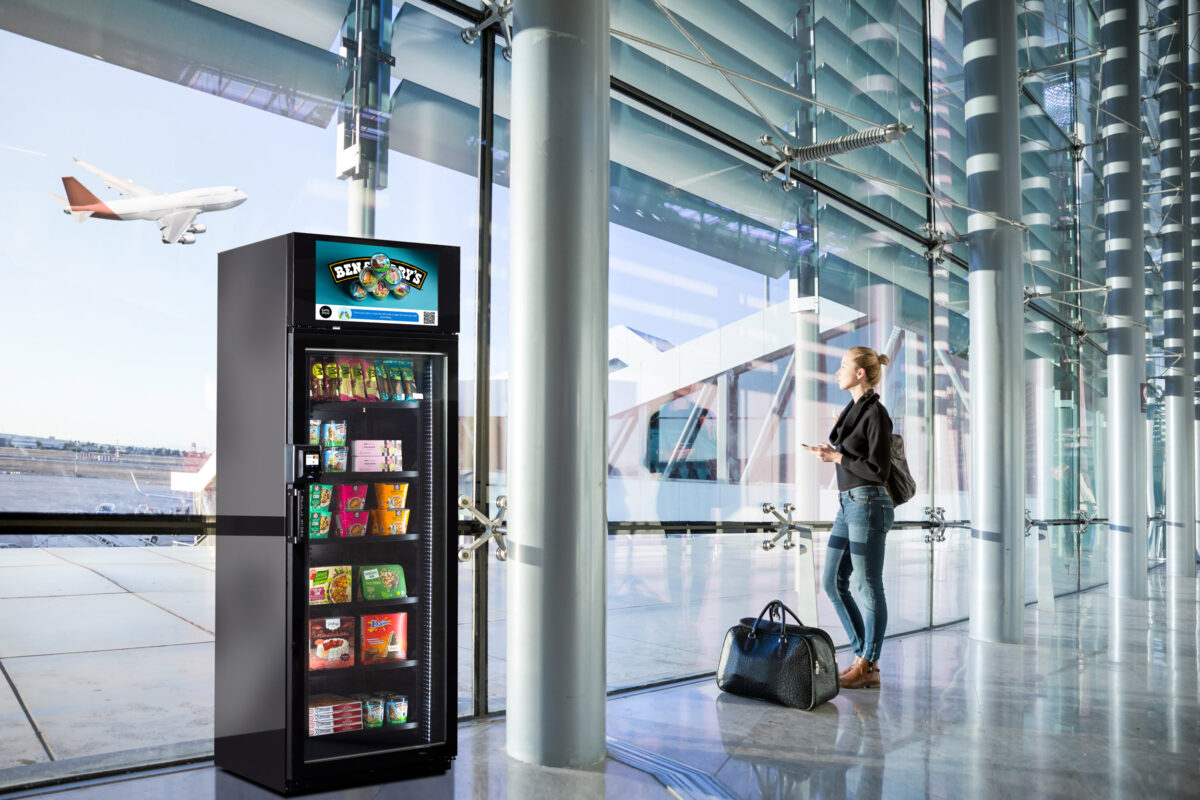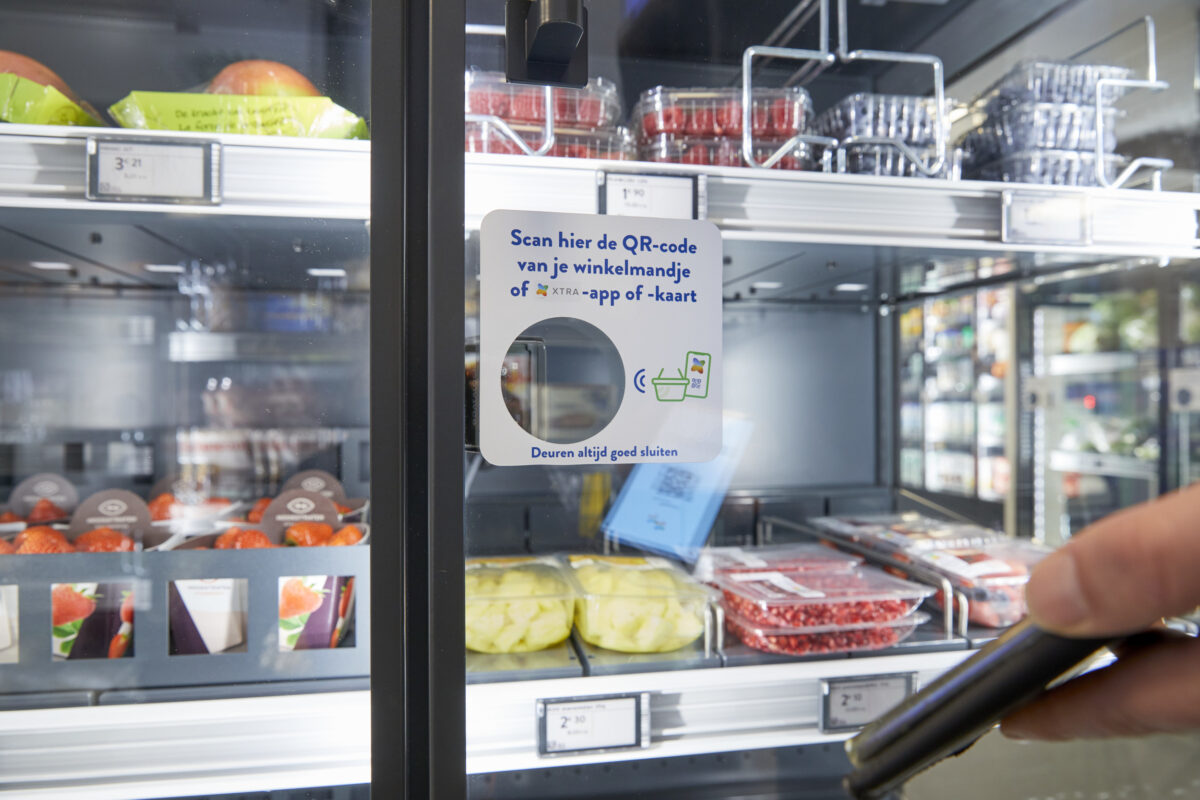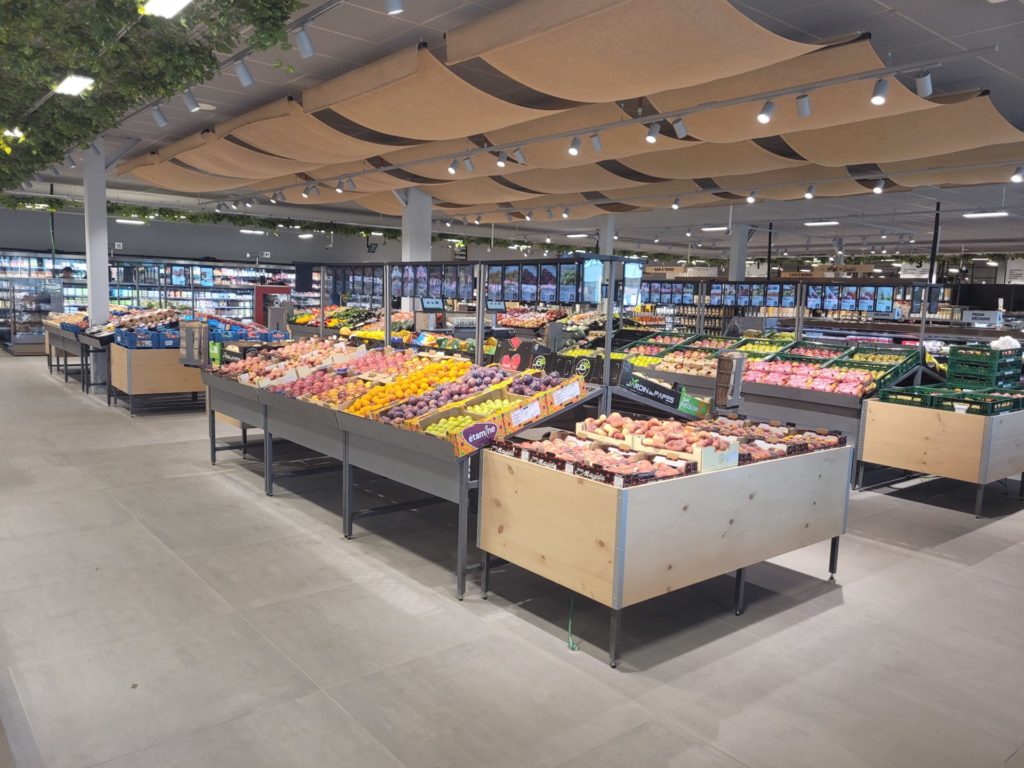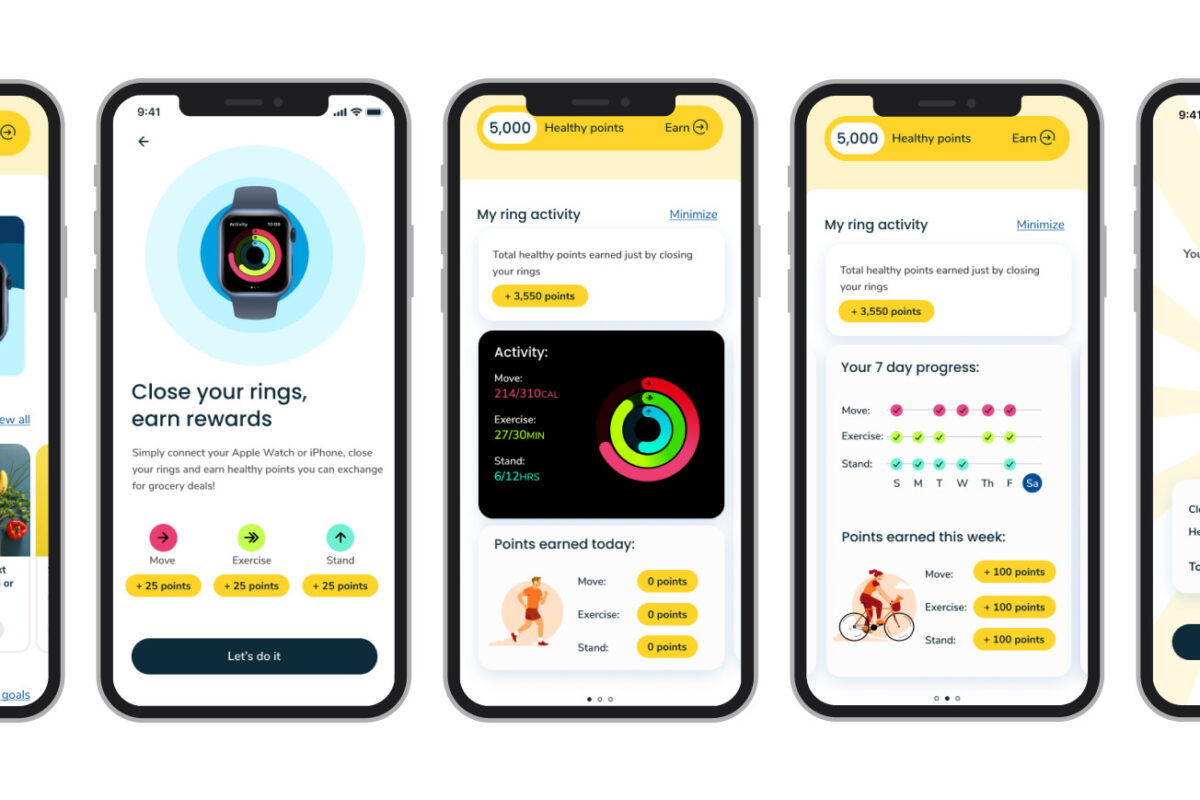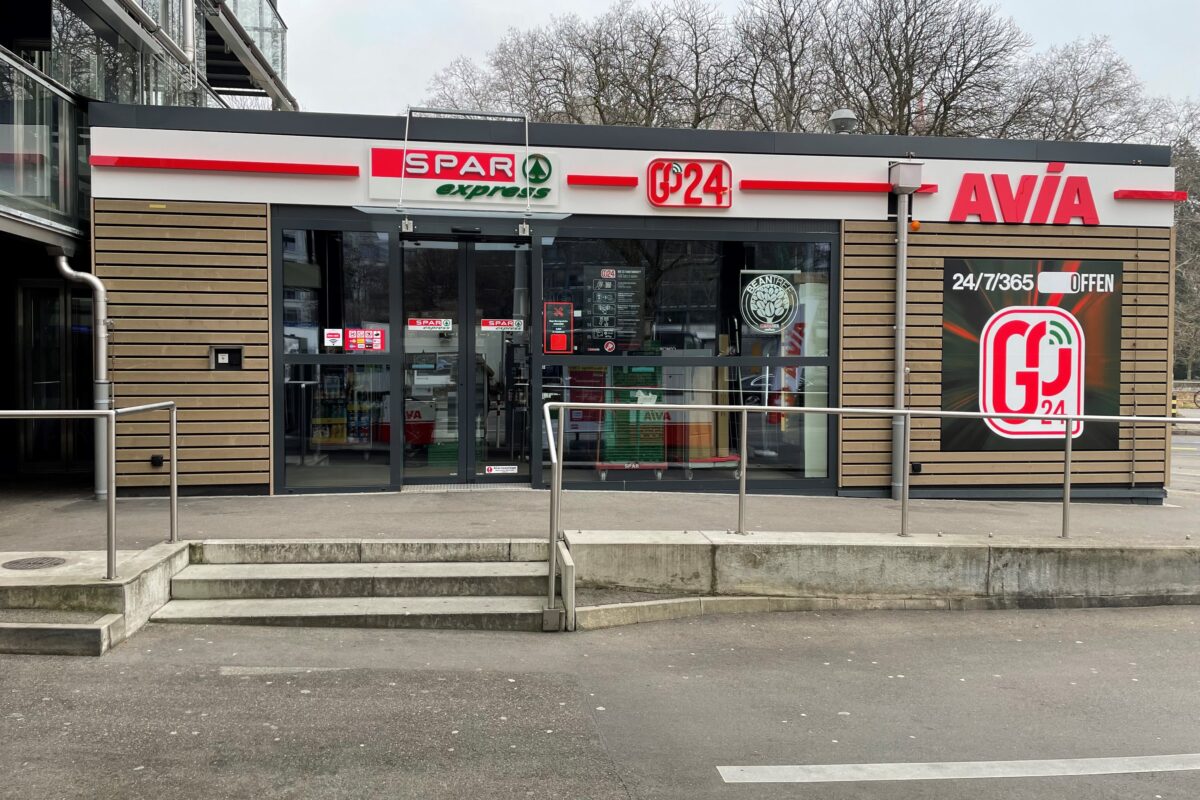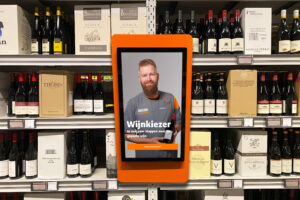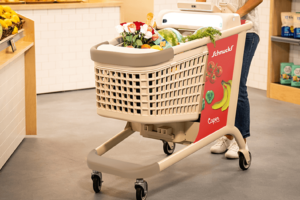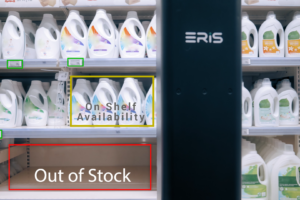Retail self-service solutions featuring counters, vending machines, and robots
by Julia Pott (exclusively for EuroShop.mag)
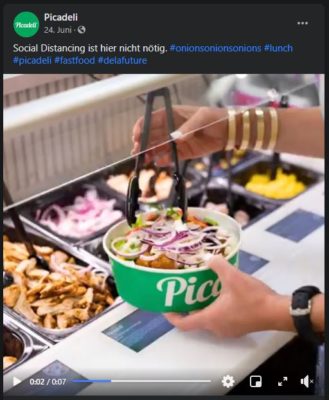
© Picadeli
Restaurants and delivery services are not the only entities that tap into the “carry-out” potential. Supermarkets also like to get on the bandwagon and offer ready-made meals and salad bars. The competition is fierce but for now, the pesky coronavirus pandemic has thrown a monkey wrench into many great opportunities. What are some solutions retailers plan to use in the future to be successful in the “meals-to-go” business?
The convenience market is booming in the industrialized nations and brick-and-mortar retailers are often the first port of call. That’s why they can score big points with a wide range of ready-made meals. In a press release, Lionel Souque, CEO of REWE Group, explained: ““On-the-go and out-of-home consumption are among the strongest trends in our sector, and their importance is set to grow further. And it is not just young people who increasingly buy and consume meals and snacks on-the-go.”
Retailers are also keen on solutions that are less labor-intensive and that don’t require several employees at all business hours. That’s why many supermarkets have set up self-serve counters with fresh food in recent years. Examples include salad bars or hot food counters. Customers really like the option of building their own meal with carefully selected ingredients and then taking it home or eating it right away.
Proper hygiene – a must-have when it comes to food
But this handy option comes with its own challenges. One of them is hygiene– especially during the coronavirus pandemic. As a result, many salad bars or hot food counters now feature packaged items versus fresh foods. Customers unsupervised at food buffets? A no-go in times of pandemic. But how can retailers maintain hygiene practices and still offer fresh foods to go?
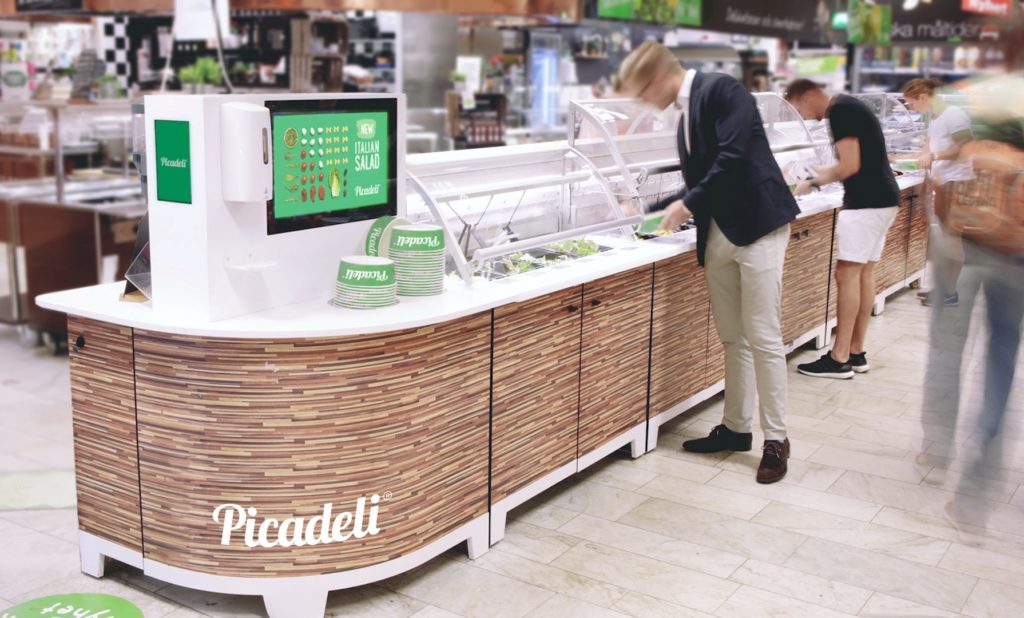
© Picadeli
The Swedish brand Picadeli of the Greenfood Group has tackled the issue with its salad bar. Many Rewe stores feature salad bars that are managed by employees via an app. Employees get regular reminders to clean and refill the counters. Refill portions are being scanned prior to refilling, allowing store management to track consumption levels and inventory. Consumers can clean their hands at sanitizer dispensers, while the transparent glass lid can be opened just wide enough for users to retrieve their items yet protecting the food from respiratory droplet contamination. The serving utensils are fastened above the bowls and can only be used for one salad ingredient, thus preventing them from falling into the food below.
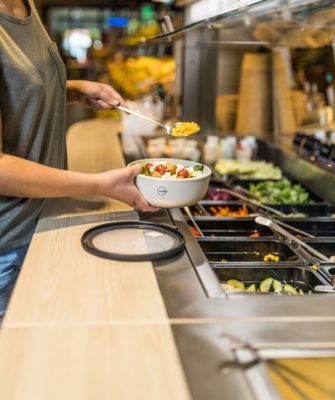
© REWE
Picadeli and Rewe are right on trend with their salad bar idea: “With a population of 83 million, Germany is Europe’s largest market. They are furthermore leading edge vegetarian and vegan food. The demand for healthy, delicious convenience food is enormous,” says Anders Klinge, Managing Director of Picadeli Germany.
The second big issue – one that Picadeli hasn’t addressed yet – is the packaging waste surge. Food is typically stored in single-use containers and often consumed with disposable utensils, which must then be thrown away. Reusable solutions and upcycled packaging materials are still rare exceptions in this setting. VYTAL is a start-up company that received the Science Award at this year’s EuroShop and plans to tackle this issue with reusable containers. (Here you can find the report at EuroShop.mag.)
Menu by robot
One way of solving the tough issue of hygiene is to use automated technology and solutions that work at the push of a button, with a machine doing all the hard work. Some supermarkets have already introduced these types of systems. Examples include bread “baking ovens” vending systems and soda machines. Customers select their items via a display and remove the packaged product. However, personalization is not an option in this case as customers can only choose from a predetermined product selection.
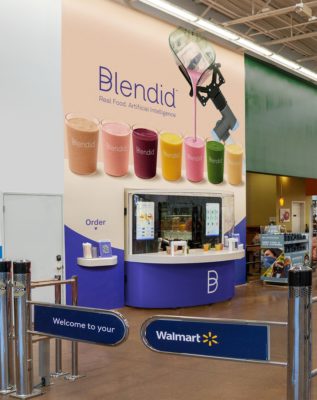
© Blendid
Things are more exciting when it comes to retail meals-to-go with pre-made meals or build-your-own options such as salads, wraps, sandwiches, or bowls. There are already some available choices when it comes to smoothies: Walmart has introduced the smoothie-making robot Blendid to some of its stores.
The latest innovations in robot technology make self-service with no employee contact a reality. Sally, the world’s first salad robot from Chowbotics, enables customers to use a touchscreen to build meals. The robot mixes the ingredients and dispenses the finished product. Consumers are no longer in direct contact with the food but can still personalize their meals. Staff is still on site to explain how to use the robot, fix problems, and clean up if needed, but a full-time employee is no longer needed in this setting.
Another major benefit of automated solutions is that they allow contact-free operations by customers via apps and smartphones. These options offer great opportunities to retain customers, especially when you combine them with recipe and meal ideas, health and nutrition tips, or complementary product suggestions by retailers.
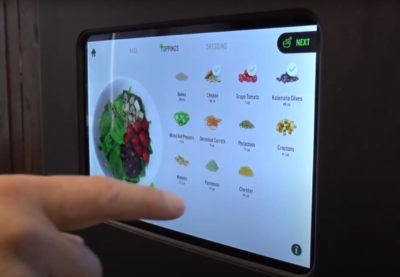
© Miller & Associates (YouTube-Video Screenshot)
Retailers and producers can also maximize their access to useful information: technology enables them to track food trends and the types of products popular with consumers, determine successful combinations, and specify ingredients that must be reordered. “The high level of digitalization generates both groundbreaking consumer insights and opportunities for automation,” sums up David von Laskowski, CEO of Greenfood Group and Picadeli. Exactly the types of insights retailers need to find and implement successful solutions that shape the future of the convenience food segment.







